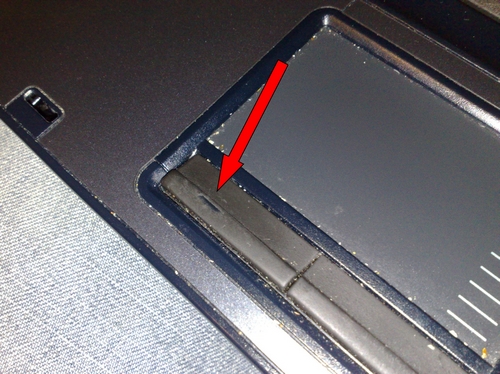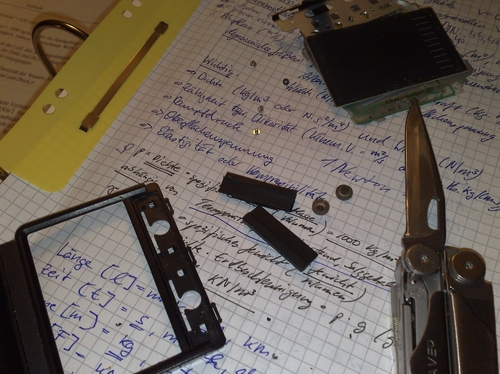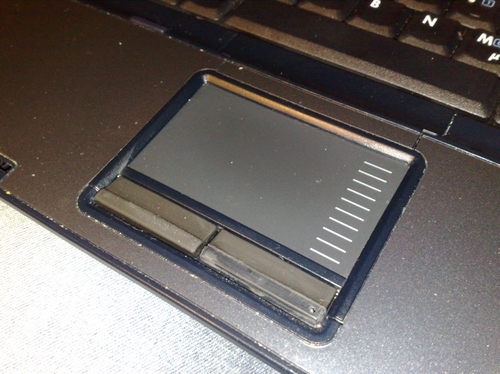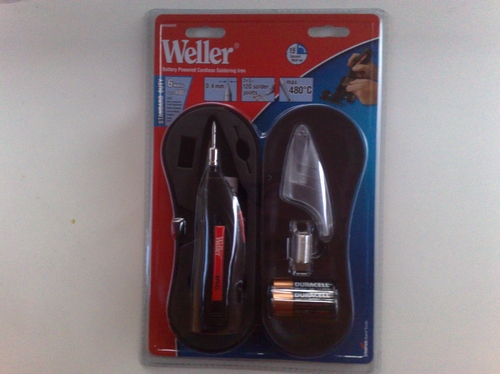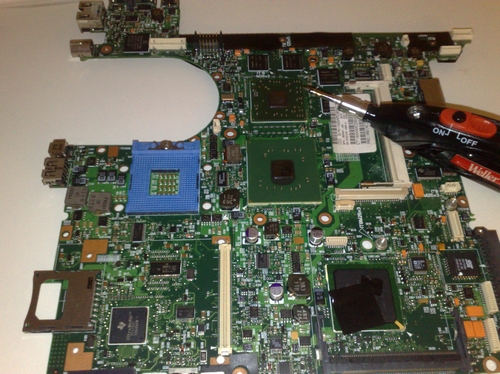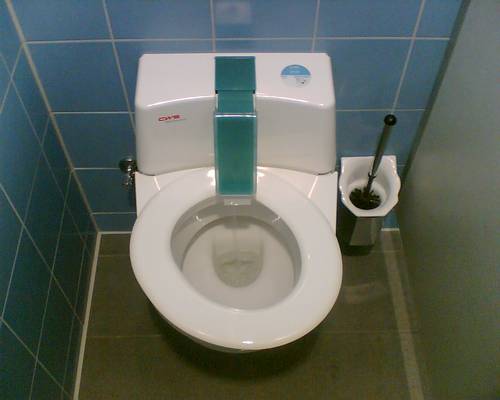ECOlogically and economically sustainable wastewater management and SANitation systems.
I’ve been dying to blog about this since 2005 or so, and my initial plans included to describe a few of the already on-going ecosan related projects in Kenya and other parts of East Africa. But life had other plans with me, so instead of promoting ecosan in EAK on behalf of an international NGO, I am instead doing just another internship at one of the ecosan HQs here in Europe. It feels a bit strange being the intern at this age, but then: why not?!
I am sucker for high-tech gadgets, sophisticated technology and appreciate many things the web & phone world has brought as goodies in the past. It sure are exciting times we’re living in these years, and whoever thought the dot com bubble is gone, hasn’t really understood yet the meaning of IT in Africa.
High-tech on one hand – that kind of development we’ve been waiting for and always considered the “progress” which will advance us in so many ways. As for the booming mobile phone sector, this is just very true.
On the other hand, though, the majority of ppl in this world still lives below the poverty line, and it is estimated that 2.6 billion (!) people worldwide have no access to basic sanitation needs. I blogged about ecosan more than a year ago here and here, and this huge number makes ME think: “ok, before we saturate some (not necessarily only!) developing countries with high-tech gadgets such as the OLPC initiative (where ppl so often forget the desired reverse-engineering effect) or continue hyping lots of fancy web services, let’s get back to the basic stuff, the low-tech ideas that have worked in the past and will provide good and sustainable solutions for the future.”
One of those things is the ecosan approach. Ecological sanitation.
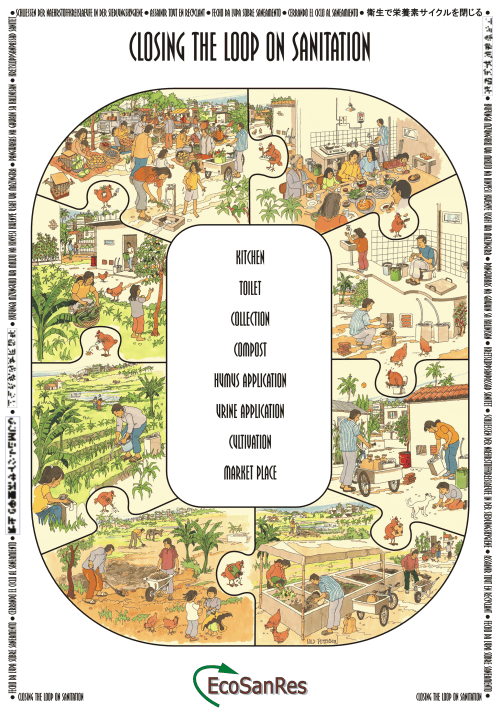
The concept behind ecological sanitation (ecosan) is that sanitation problems could be solved more sustainably and efficiently if the resources contained in excreta and wastewater were recovered and used rather than discharged into the water bodies and the surrounding environment.
The end-of-pipe sanitary systems that are used today are based on the modern misconception that human excreta are simply wastes with no useful purpose and must be disposed of.
Ecological sanitation is a new paradigm in sanitation that recognises human excreta and water from households not as waste but as resources that can be recovered, treated where necessary and safely used again.
Ideally, ecological sanitation systems enable a complete recovery of nutrients in household wastewater and their reuse in agriculture. In this way, they help preserve soil fertility and safeguard long-term food security, whilst minimising the consumption and pollution of water resources. (source)
Water, yeah, my favourite subject. A resource, often taken for granted and desperately sought for when about to finish.
Whenever I am telling others about my interest in water, they come with these rather boring phrases like “aaah, water, yes, the currency of the future”. And by saying such things, they so often forget the other part in this water business: wastewater management. Being active in water doesn’t necessarily mean you’re issuing licences to water abstractors from rivers and giving permits for water wells ONLY. What happens to the wastewater? Yes – do you know what happens to your waste water?
You know, while you’re reading this blog post, someone in China is currently relieving himself on one of those 1.02 million ecosan toilets already in use all over China.
The Chinese, dude! The very same nation that loves to cook and eat, this one particular nation that has a tremendous interest in the various commodities of the African continent and that will host the 2008 Olympic Games.
The Chinese aren’t that dumb. They may be copying our products from Europe like crazy, sacrificing the environment in their cities for technical “progress” and may have a strange understanding of how to treat it’s people in a People’s Republic, but what they DID understand so far is that whenever we relieve ourselves on the toilet, lots of nutrients are going down the drain.
With a limited availability of fertilizers in future, retaining those that are contained in our faeces and urine makes sense. Meaning: with our “modern” flush toilets, this mixture of faeces and urine is diluted with water, and any further treatment of the wastewater requires an investment of energy and lots of high-technology to seperate the different material flows. Something that does not have to be.
Instead, the approach on ecological sanitation promotes the use of a) compost toilets, b) urine diversion toilets, c) dehydration toilets and/or toilets based on vacuum technology. And while different technologies are already implemented and piloted in various parts of our globe, all of these systems try to provide a more holistic, a much more sustainable approach on this key issue of sanitation.
And yes, sanitation IS an important issue. The UN already declared 2008 being the “International Year of Sanitation“, and while I personally don’t expect any output from an international bureaucratic body such as the UN, I do appreciate their understanding that something has to be done about this pressing issue.
So far so good.
I received a letter today from someone who takes care of a local hospital, school and orphanage in Matyazo, Tanzania, and who asked for advice on how to change their sanitation system into a more sustainable one.
At the moment, the 300 people on this (missionary?) station are defecating into traditional (ventilated) pit latrines, which obviously fill up quickly and are no proper solution for many people on one small plot.
Well, THESE are the challenges – and suddenly you are there in this position, where someone is asking your advice on what kind of sanitary system would be the best solution for this very remote station somewhere out there, 30kms south of the Burundi border. I don’t know what kind of solution would be the best, and more details would prolly help on identifying a better solution than those pit latrines currently in use.
However, it are exactly these examples from our daily life that so often remind me of the importance on how we are supposed to handle our waste. Also, due to the nature of the subject, ppl don’t give it the same priority it is supposed to have. Good sanitation is a must, but then when you’re in Kibera, that particular slum informal settlement in Nairobi (…), try to explain a father of 8 children to cough up 5/= bob for each child and every toilet session.
I sometimes think of Daudi’s comment earlier this year in which he mentioned the business potential for an extensive clean public toilet system in Kenya. Either paid or free of charge, this matter of sanitation isn’t something I would like to leave to some environmentally aware NGOs (who of course sometimes have? the necessary? funds) only, but instead make it an international priority with a business approach.
Eh voil? , there you go with your low-tech idea on one hand (that actually works!) and the NGO approach on the other hand. With a possible sale of fertilizers, I hope that this isn’t the only financial incentive to promote these low-tech, low-cost toilet systems. Reason for mentioning all this is that I see a potential conflict between the typical NGO approach and a sound business idea based on ecologically sustainable toilet systems. If, of course, we only charge for the use of good toilets, those who require them the most, won’t be using them, and if? they are? only promoted by non-commercial interest, I currently don’t see the required acceptance among the public.
(to be continued..)
